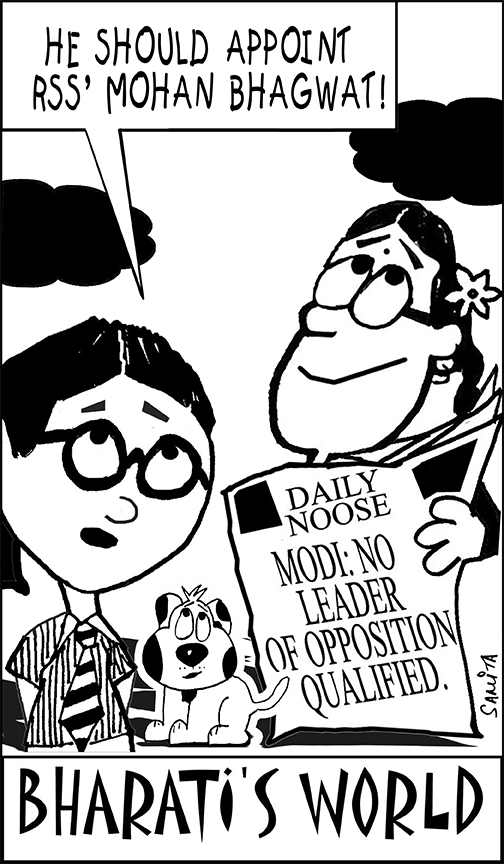AFTER PREVARICATING for four years and delaying payments due to managements of 8,000 private unaided schools which admitted children from poor households in their neighbourhoods, the Maharashtra state government has approved disbursal of the fee reimbursement due to them. Under a July 16 notification, the state government has increased the formerly promised tuition fee reimbursement of Rs.10,000 per student to Rs.12,315 for 2012-13 and Rs.14,621 for 2013-14, promising to reimburse the dues of private unaided schools in the near future.
 UNDER S.12 (1) (c) of the landmark Right of Children to Free and Compulsory Education (RTE) Act, 2009 which became law in 2010, all unaided private schools are required to admit — free-of-charge — 25 percent of children from poor households in their neighbourhood in class I (or pre-school if any), with the tuition fees of such children to be reimbursed on the basis of per child expenditure incurred by the state government in its own schools “or the actual amount charged from the child, whichever is less”.
UNDER S.12 (1) (c) of the landmark Right of Children to Free and Compulsory Education (RTE) Act, 2009 which became law in 2010, all unaided private schools are required to admit — free-of-charge — 25 percent of children from poor households in their neighbourhood in class I (or pre-school if any), with the tuition fees of such children to be reimbursed on the basis of per child expenditure incurred by the state government in its own schools “or the actual amount charged from the child, whichever is less”.
However after representative associations of private schools unsuccessfully challenged the constitutionality of s.12 (1) (c) in the Supreme Court (Society for Unaided Schools of Rajasthan vs. Union of India (2013)), they protested that the Rs.10,000 per year reimbursement was arbitrary and below per student cost incurred by the state government in its own schools. Consequently the government has agreed to pay the higher amounts for 2012-13 and 2013-14, but not for the earlier years on grounds that private schools had not complied with s. 12 (1) (c) in 2010-11 and 2011-12.
The RTE Act also specifies that schools with a pre-primary section have to admit students into nursery, junior kindergarten and senior kindergarten on the same terms and conditions. But the state government is yet to announce the tuition fee to be reimbursed to such composite schools. “Therefore we are obliged to continue to bear the tuition expenses of s.12 (1) (c) children admitted into pre-primary classes,” says Nikhil Wagh, managing director of City International Group which runs four composite schools in Mumbai and Pune, and levies an annual fee of Rs.40,000 per child in pre-primary classes.
Following the issue of the notification, Maharashtra’s commissioner of education S. Chockalingam informed The Times of India (July 22) that eligible schools will be reimbursed the stipulated amounts by way of online fund transfers, though he didn’t set any time lines. According to knowledgeable monitors of Maharashtra’s education scene, over 66,000 students have been admitted into 8,500 private unaided schools since 2011-12, and the amount owed to them under this provision of the RTE Act aggregates over Rs.180 crore.
“The ministry should be aware that private unaided schools have no source of income other than fees from students. Therefore the government must remit the fees for every academic year at least by the end of that year. We expect promptness from the education department in the same way they expect schools to implement the RTE Act,” says City International’s Wagh.
But to expect bureaucrats of the education ministry to be aware of and sympathise with problems of private education providers who in the lexicon of socialist dogma are exploitative capitalists, is to expect too much.
Nadia Lewis (Mumbai)